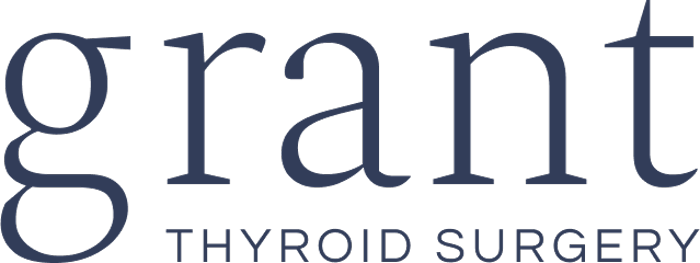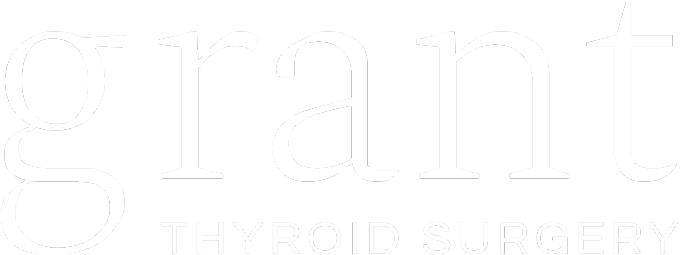Minimally invasive parathyroidectomy is a targeted surgical procedure used to treat hyperparathyroidism and parathyroid adenomas. At Grant Thyroid Surgery, Dr. David Grant—an internationally recognized head and neck surgeon—offers expert, minimally invasive care with precise diagnosis, ensuring excellent outcomes for parathyroid-related conditions.
What Is Minimally Invasive Parathyroidectomy?
Minimally invasive parathyroidectomy is a specialized surgical technique used to remove one or more overactive parathyroid glands, typically in cases of primary hyperparathyroidism caused by a parathyroid adenoma. Unlike traditional surgery, this approach uses a small incision and is guided by advanced imaging to target the affected gland precisely. This results in shorter operative time, reduced scarring, and quicker recovery. Dr. Grant uses state-of-the-art techniques to help you regain hormonal balance with minimal disruption to your life.

Potential Reasons to Consider Minimally Invasive Parathyroidectomy:
- Persistent high calcium levels in the blood
- Diagnosis of primary hyperparathyroidism
- Presence of a confirmed parathyroid adenoma
- Symptoms such as fatigue, bone pain, or kidney stones
- Loss of bone density or diagnosis of osteoporosis
- Recurrent kidney stones despite medical management
- Difficulty concentrating or experiencing cognitive “fog”
- Gastrointestinal symptoms like nausea or constipation
- Recommendation from an endocrinologist or specialist for surgical intervention
Target the Problematic Gland With Minimal Disruption
Minimally invasive parathyroidectomy allows Dr. Grant to precisely target the overactive parathyroid gland while preserving surrounding structures. Using advanced imaging and intraoperative hormone monitoring, he locates the problematic gland and removes it through a small incision. This avoids unnecessary exploration, reduces surgical trauma, and shortens operating time. Because only the affected gland is removed, your healthy glands remain intact, which helps maintain hormonal balance.
Benefits of Minimally Invasive Parathyroidectomy:
- Smaller incision with less visible scarring
- Shorter operative and anesthesia time
- Reduced postoperative pain and discomfort
- Faster return to normal activities
- Lower risk of surgical complications
- Precise targeting of the overactive gland
- Preservation of healthy parathyroid tissue
- Outpatient procedure in most cases
- High success rate with long-term symptom relief

How Is Minimally Invasive Parathyroidectomy Done?
During a minimally invasive parathyroidectomy, Dr. Grant uses preoperative imaging to pinpoint the overactive parathyroid gland. You’ll receive a small neck incision—typically less than an inch—under local or general anesthesia. Dr. Grant removes the problematic gland using specialized instruments while preserving the surrounding structures. Intraoperative parathyroid hormone (PTH) monitoring is used to confirm the gland’s successful removal. The procedure is usually completed in under an hour, and you can return home the same day.
Recovery After Minimally Invasive Parathyroidectomy
You’ll likely return home the same day and resume light activities within 24 to 48 hours. Most patients experience minimal pain, which is easily managed with over-the-counter medications. The small incision heals quickly, often leaving a barely noticeable scar. Dr. Grant will monitor your calcium levels and overall recovery to ensure everything is progressing as expected. You can usually return to work and normal routines within a few days, feeling noticeably better as your calcium levels stabilize and symptoms resolve.
Minimally Invasive Parathyroidectomy FAQs
Is the Procedure Safe?
Yes. Minimally invasive parathyroidectomy is considered a very safe procedure when performed by an experienced surgeon. Dr. Grant is a fellowship-trained expert in head and neck surgery, and his technique minimizes risk while maintaining high success and cure rates.
Will the Scar Be Visible?
The incision is small and placed in a natural neck crease, making it barely noticeable once healed. Most patients are pleased with the cosmetic outcome.
How Long Does the Surgery Take?
The surgery typically takes 30 to 60 minutes. Because the affected gland has already been localized using advanced imaging, the procedure is more efficient than traditional surgery.
Will I Need to Stay In the Hospital Overnight?
In most cases, minimally invasive parathyroidectomy is performed as an outpatient procedure so you can go home the same day. You’ll receive post-operative care instructions and have follow-up appointments scheduled with Dr. Grant.
How Soon Will I Feel Better?
Many patients begin to notice improvement in symptoms such as fatigue, brain fog, and bone pain within days of surgery. Others may experience gradual improvement over several weeks as calcium levels normalize and the body adjusts.

Schedule Your Consultation With Dr. Grant
Dr. David Grant is a board-certified otolaryngologist and fellowship-trained head and neck surgeon with advanced expertise in minimally invasive parathyroidectomy. Having trained under one of the world’s most experienced thyroid surgeons, Dr. Grant delivers world-class surgical care with precision. At Grant Thyroid Surgery, every aspect of your treatment is thoughtfully managed to ensure optimal outcomes and a seamless experience. If you’ve been diagnosed with hyperparathyroidism, schedule your consultation today.

